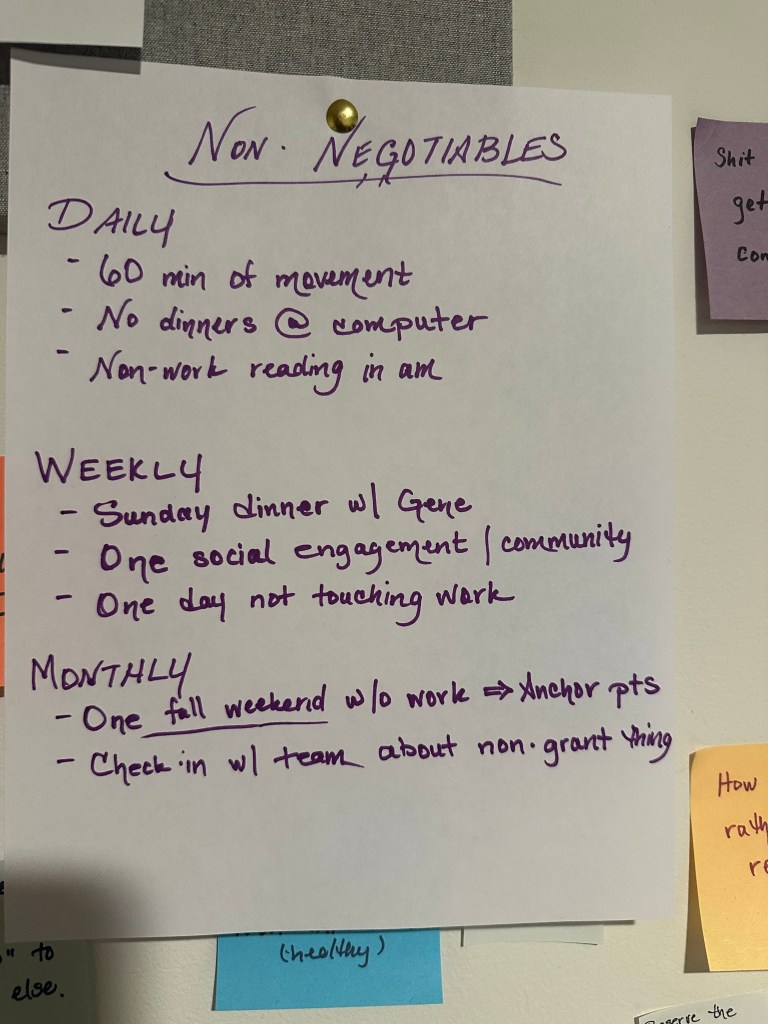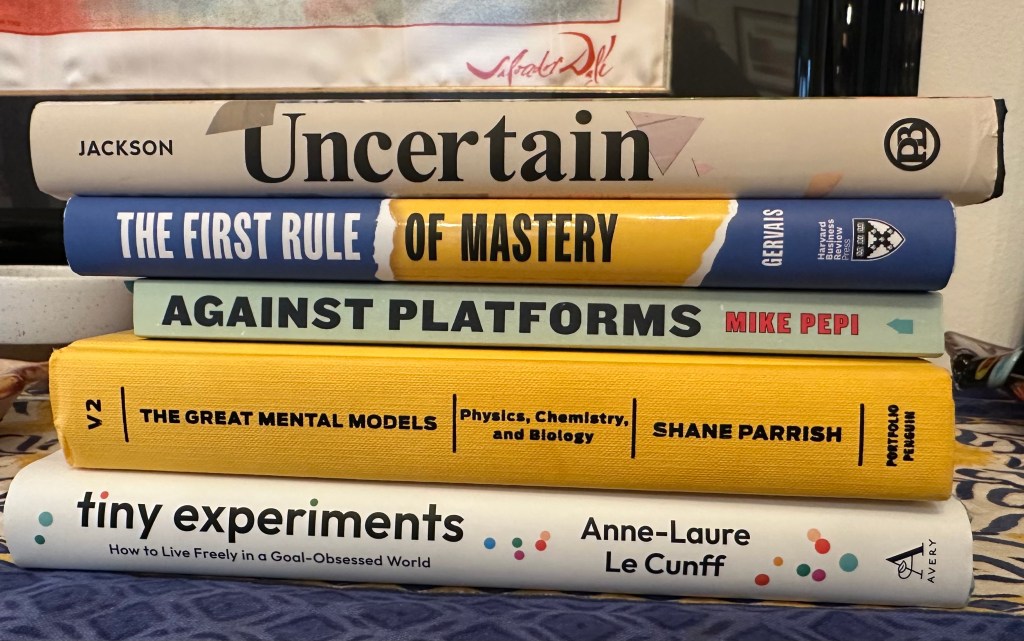I hesitate to even write that title. 2026 has already brought horror and bleakness. It feels almost… dismissive, trite, frivolous in the face of what is happening in the world today.
And yet…
Typically I end a year reflecting on what transpired, how my theme showed up/worked out and looking ahead to the next year and what should guide me as we move ever on and on.
On our New Year’s Day walk, my husband asked if I had a word for the year. I had thought about a couple of options—rest, restore… As I was pushing towards a major deadline at the end of January with some time set aside to rest afterwards, though, I decided I would wait until that period arrived.
This week I learned that the deadline is delayed 4 months—the funder’s decision (due to delays on their end), not ours. Honestly, I felt some relief. We were going to be ready for the January deadline, but we would be pushing hard, and now we have time to refine and better integrate some recent changes.
So what now for 2026 and its theme?
I briefly considered “persist.” It’s appropriate on many levels. Yet I immediately felt a heaviness. “Persist” landed like drudgery, and that’s not the energy I want to bring to the year.
“Maintain”? That sounds awfully dull. Important, but not inspirational.
I realized I was looking for something that would bring a sense of joy. So many of my words over the years—though they have served me so well!—have been serious, operational: Center. Building. Systems. Trust.
“Explore”? I had been reading The Explorer’s Gene by Alex Hutchinson, delving into why we humans seek out challenges and how exploration changes our brains and our societies. Maybe that’s what I was looking for…
But realistically, how much time will I have to explore this year? I have multiple deadlines this year requiring intense focus, exploiting what I know and do well. I know from experience that such focus can limit more expansive thinking.
Then its relative drifted into my mind: Play.
Play… What does that mean in a year that requires deep focus? In another year the world is on fire?
First, play means not getting lost in work or horror. It means making space for things that feed my soul, that fill me with joy.
At one point in 2025, going through a particularly challenging period, I set up some Tiny Experiments, inspired by Anne-Laure Le Cunff‘s book of the same title. I kept it simple: Do one intentional act every day that feeds my soul. They ranged from going on runs with friends to listening to an entire album start to finish in the order the artist defined to trying a new recipe. The act mattered less than the decision. I couldn’t decide after the (f)act. It was the intention, even moments before, that I was doing it for me.
That’s the spirit I’m taking into 2026. Work is not my identity. Don’t get me wrong—I find a ton of meaning and satisfaction in my work. But I am so much more than that, and play means making the time and space to try things that are not obligations—rather commitments to my full self.
There’s a second part though, relevant to work and other “serious” parts of my life.
Play is an invitation to hold the serious things in my life a little less tightly. What happens if I loosen my grip? Make space for others to try new things? Imagine different ways or alternatives to my vision?
Maybe play isn’t so frivolous after all.






